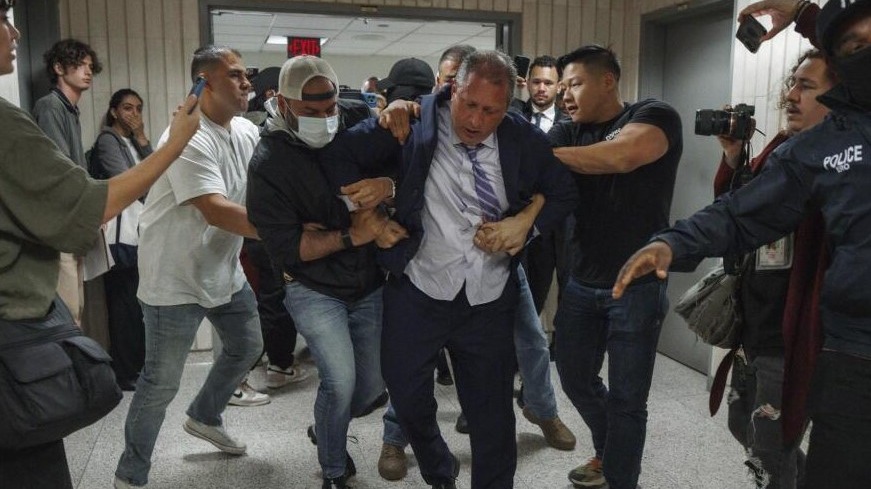
Political Stunt or Genuine Concern? The Controversial Arrest of Brad Lander
In what has become a hot topic of debate, New York Democratic politician Brad Lander faces accusations of staging his recent arrest as a ploy to garner publicity. Released by federal authorities within mere hours, critics speculate that the event was engineered for political gain, aiming to dominate news cycles.
The Response of Political Opponents
Former New York City Councilman Joe Borelli argued that Lander's arrest was calculated, stating, "Make no mistake, the purpose was to get the headlines that he's getting." The charges against Lander, as well as his swift release, raise eyebrows and questions about the integrity of the political motives driving such situations.
Is This a Pattern in Politics?
This incident brings attention to a broader issue within American politics. Public figures have frequently used dramatic events to manipulate narratives and public perception. Political stunts are not new; they date back decades, influencing public opinion and electoral outcomes. It poses an essential question about authenticity in politics—how can voters discern genuine actions from mere theater?
Public Reactions and Media Coverage
Reactions to Lander's arrest reveal a polarized electorate, with some individuals expressing skepticism about the motives behind his quick release. Social media has ignited a firestorm of discourse, where hashtags related to the incident are trending, drawing further national attention. Amidst a backdrop of political unrest and skepticism toward establishment figures, narratives like Lander's only serve to intensify scrutiny of elected officials.
The Role of Media in Politics
In modern politics, the media plays a crucial role in shaping narratives and influencing public perception. As events unfold—such as arrests or controversies—the media's responsibility is to provide balanced reporting while also holding public figures accountable. Breaking news updates from reputable sources often dictate the initial narrative, but those narratives can shift depending on the coverage. The intersection of media, politics, and public perception creates an environment ripe for speculation and misunderstanding.
The Bigger Picture: Political Accountability
Lander’s arrest and the surrounding circumstances pose vital questions of political accountability. As we debate the efficacy of our political leaders, it forces us to consider how much we are willing to overlook and how these stunts impact trust in government.
Potential Outcomes and Future Implications
As investigations continue and public interest remains high, the implications of this incident could be far-reaching. Will Lander face backlash that could jeopardize his political career? This escapade adds to a growing list of controversies featuring politicians leveraging emotional narratives to sway public opinion.
Ultimately, political events like these serve as a reminder that while some actions may appear calculated, they can also expose deeper systemic issues within governance and public trust. Taking informed action is essential as voters navigate the complex landscape of modern politics.
 Add Element
Add Element  Add Row
Add Row 



Write A Comment